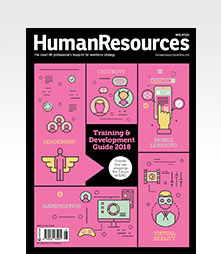share on
Established in 2009, Malaysia Healthcare Travel Council (MHTC) is an agency under the Ministry of Health to facilitate the Malaysian healthcare industry’s penetration into the global market.
Part of MHTC’s management committee is Suriahni binti Abdul Hamid, chief operating officer, who affirms the agency’s people agenda is run consistently parallel to the needs of the wider organisation.
MHTC's people agenda includes clarity in strategy, translation of strategy to goals, framing the leadership and functional competence for leaders and individual contributors, just-in-time succession planning, tailored development interventions and fair distribution of rewards and recognition.One of the most progressive initiatives as part of this organisational agenda is the development of a holistic programme targeted at overall wellbeing. Bringing together four components – physical fitness, mental agility, emotional intelligence and spirituality – the programme is executed via a calendar for all these activities.
Interestingly, what kick-started this programme was an organisational need for business continuity. “With a strong infrastructure (programmes and initiatives), coupled with a solid execution of peoples’ agendas, MHTC can deliver our promises to raise the profile of medical tourism in Malaysia,” Suriahni says.
Since then, several workshops and collaborative sessions have been held throughout the year; to name a few, stakeholder engagement workshops, people reviews, staff retreats, knowledge-sharing sessions, functional competencies training and cross-team projects.
“Our experience has been challenging, yet fulfilling. We have developed our thinking capacity, our capabilities and our speed of delivery, making us agile and more effective in our quest for growth.”
On the challenges front, she cites them as multi-dimensional. In the backdrop of the current landscape of medical tourism, MHTC needs to grow its reach, deepen its skills and knowledge of the industry, and stay focused with the pace of change.
“As such, our people need to constantly find new and better ways to manoeuvre in this space. Upskilling and strengthening our position at the same time, can sometimes lead us to lose focus. At times, we can be in an ‘organised chaos’ state.”
The dashboard is transparent to everyone, making it easy to identify gaps quickly and rectify. The people agenda is also linked to this dashboard.
Needless to say, the primary outcome of all these programmes has been the development of MHTC’s people, both leaders and individual contributors. “The wellbeing of our people allows for better retention of our good performers. Not only do we save the cost of hiring, we also continue to strengthen our performance culture year-on-year.”
From a wider organisation standpoint, she points out the growth of MHTC’s people gets amplified in shaping the industry, and growing revenue generated from healthcare travellers.
On the related topic of working with HR solution providers, she and the MHTC team typically prefer a blended approach of in-house and external expertise. “Reason being, as we encourage collaboration across teams, we bring our partners in-house to work with us to customise short and long-term programmes.”
However, in growing the capabilities of individual contributors, a specific development intervention may be needed, in which case outsourcing makes more sense. In such cases, the team looks for three things in HR vendors: expertise to promote cross-learning with in-house teams; willingness to grow with MHTC in becoming a learning organisation; and ease in doing business.
There is an urgent need for leadership development vendors to develop industry-specific modular programmes that enable organisations more choices based on critical needs.
In addition to this, with time being a key factor for a majority of employers, programmes that can be run over short periods and ones that bring about key insights from thought leaders can benefit organisations effectively.
Photo / Provided
READ THE FULL FEATURE: Keeping the leadership carousel running smoothly
 Read the L&D special edition
Read the L&D special edition
share on
Follow us on Telegram and on Instagram @humanresourcesonline for all the latest HR and manpower news from around the region!
Related topics


